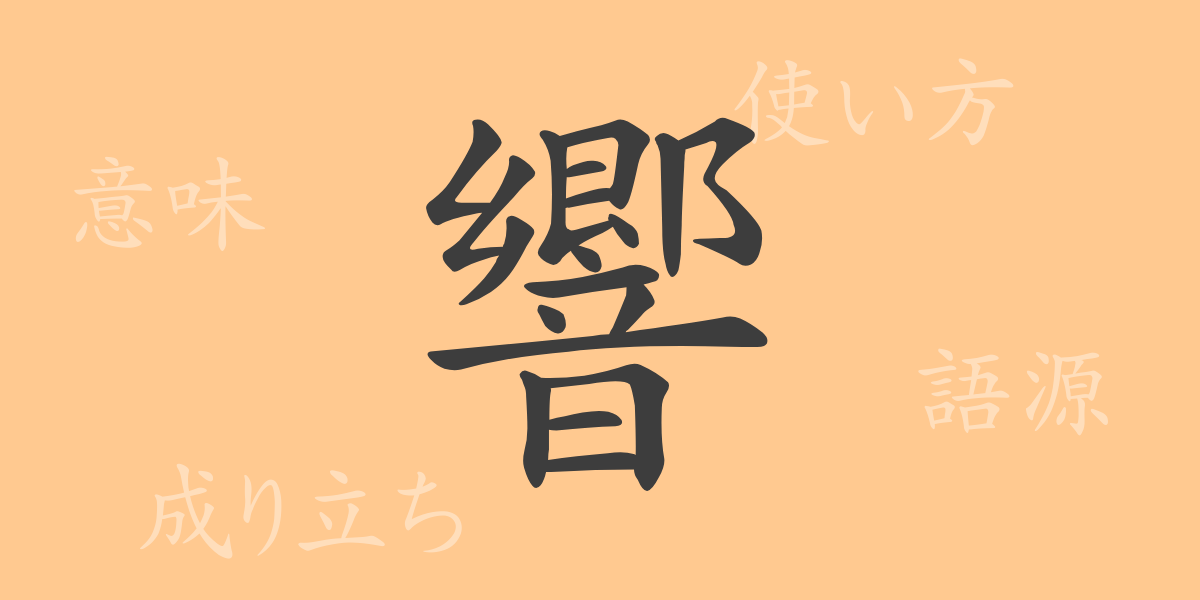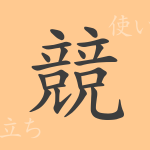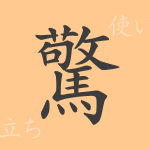There are many kanji in the Japanese language that hold both beauty and deep meaning. The kanji “響(きょう)” is deeply rooted in our daily lives, representing the spread of sound over a distance and the strength of its influence. In this article, we delve into the origins, modern usage, and cultural significance of “響(きょう).” Although the resonance of sound is invisible, it has the power to leave a lasting impression on people’s hearts. Let’s explore the world of the kanji “響(きょう).”
Origin of 響(きょう)
The kanji “響(きょう)” symbolically represents the transmission of sound through space. Its origins can be traced back to ancient Chinese oracle bone script, where it was depicted as a combination of a mouth emitting sound and arrows indicating the sound spreading far and wide. Over time, “響(きょう)” evolved to mean the vibration and reverberation of sound, and it came to be used in various expressions.
Meaning and Usage of 響(きょう)
“響(きょう)” is primarily used to describe the reverberation of sound. However, it also conveys the idea of leaving a strong impression or impact on someone’s heart. For instance, it is used in expressions like “心に響く言葉 (words that resonate in the heart)” and “感動が響く (emotions that resonate).” In the field of music, it describes the beautiful resonance of an instrument’s sound, making it an ideal kanji for conveying sensory experiences.
Readings, Stroke Count, and Radical of 響(きょう)
The kanji “響(きょう)” has the following characteristics:
- Reading: The on’yomi (Chinese reading) is “キョウ(きょう),” and it does not have a kun’yomi (Japanese reading).
- Stroke count: “響(きょう)” has a total of 20 strokes.
- Radical: The radical is 音(おと), meaning “sound.”
Idioms, Expressions, and Proverbs Using 響(きょう)
Idioms, expressions, and proverbs that include “響(きょう)” reflect the richness of its meaning. For example, the idiom “共鳴響(きょうめいきょう)” means that the same opinion or emotion resonates with many people. The proverb “一言響十里(いちごんきょうじゅうり)” means that a single word can have a significant impact, symbolizing the far-reaching influence of “響(きょう).” These expressions highlight the strong influence and spread associated with “響(きょう).”
Conclusion on 響(きょう)
The kanji “響(きょう)” is used to express invisible yet powerful forces like sound reverberation and emotional impact. Tracing its origin to its modern usage reveals the depth of the Japanese language and its cultural background. “響(きょう)” plays a crucial role in our lives, from music and literature to everyday conversation. Its resonance will continue to echo in the hearts of many people.

























